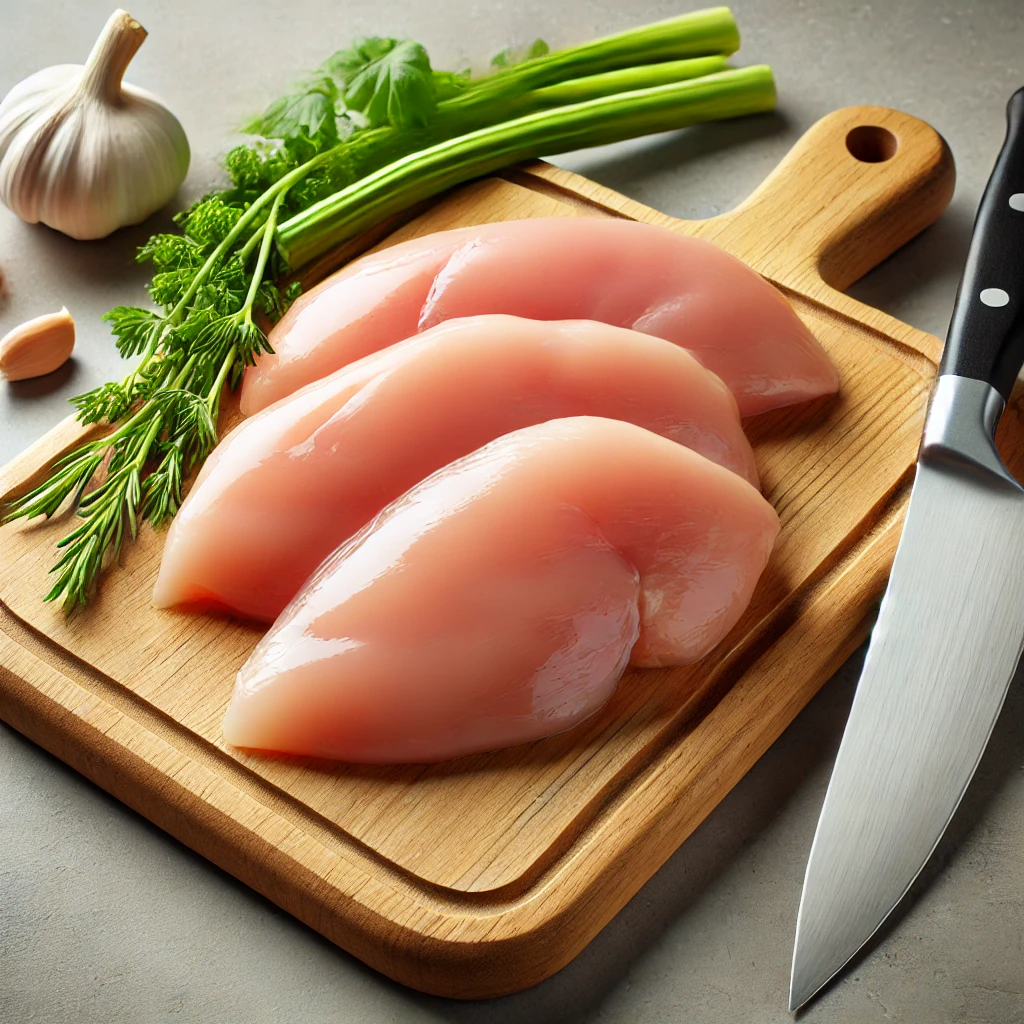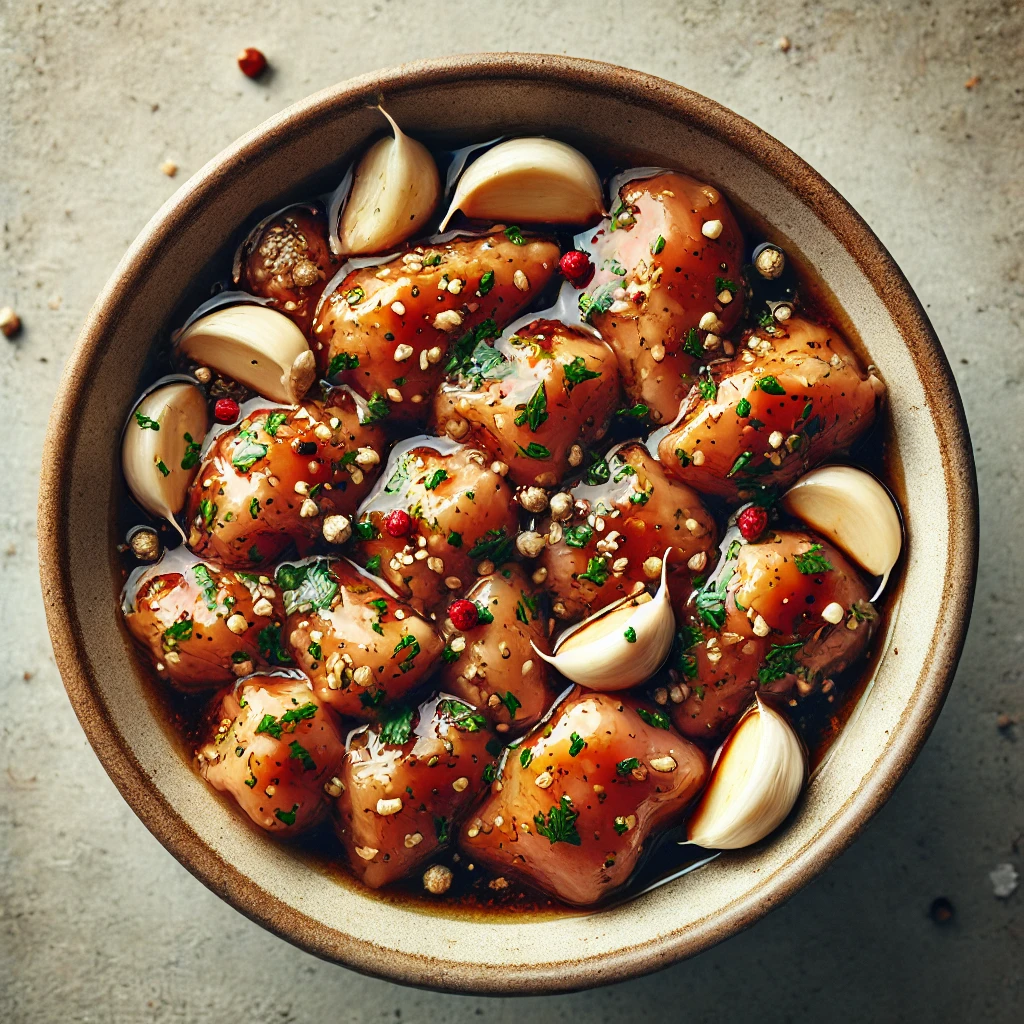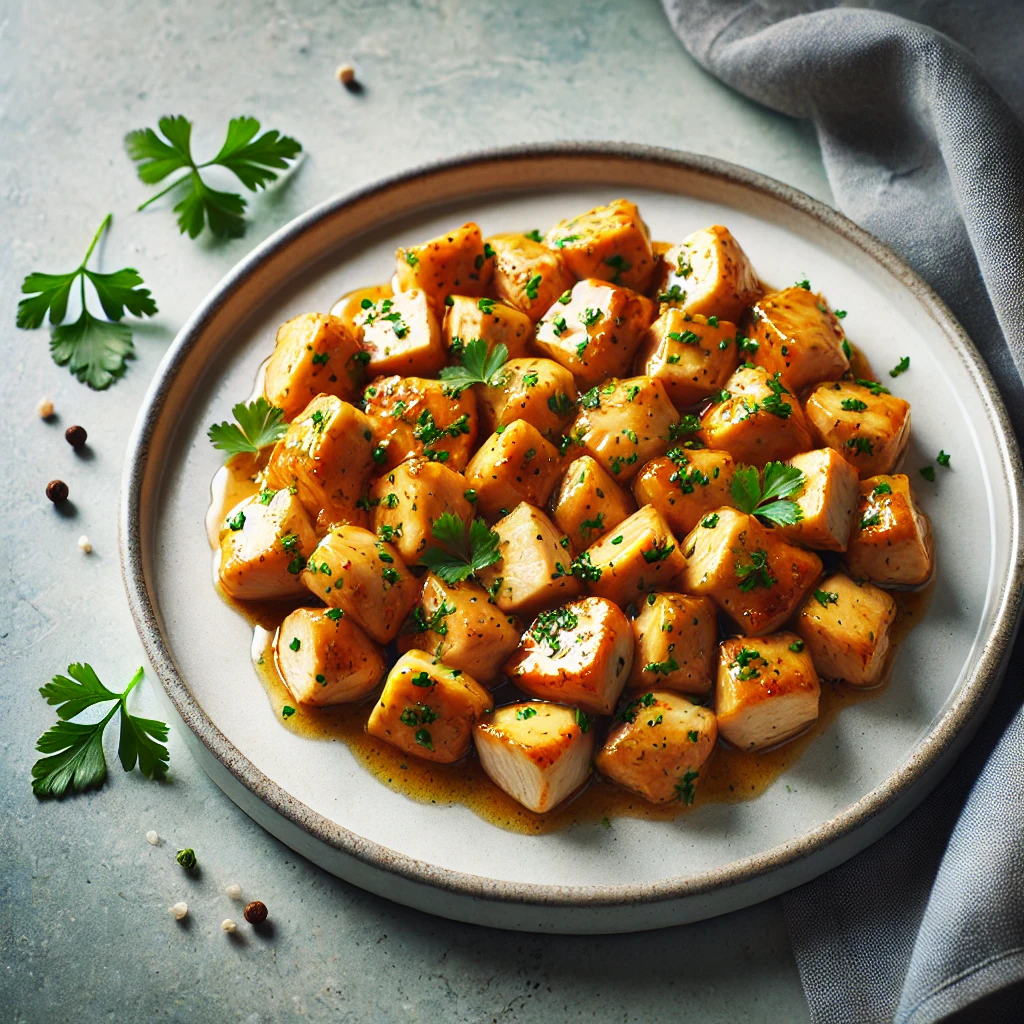Table of contents
- Introduction
- Importance of Moisture in Chicken
- Preparation Techniques
- Cooking Methods
- Cooking Tips and Tricks
- Additional Tips
- Common Mistakes to Avoid
- Conclusion
- Call to Action
- Frequently Asked Questions (FAQs)
- Q: How long should I marinate diced chicken to keep it moist?
- Q: What is the best temperature to cook diced chicken?
- Q: How do I know if my diced chicken is overcooked?
- Q: Can I use frozen chicken for dicing, and how should I prepare it?
- Q: What are some quick and easy marinades for diced chicken?
- Q: Is it necessary to let diced chicken rest after cooking?
- Q: Can I add broth or stock while cooking diced chicken in a skillet?
Introduction
If you’re looking for a foolproof way to make your chicken dishes mouthwateringly juicy, you’ve come to the right place. Cooking diced chicken can be tricky, but when done right, it can elevate your meals to new heights. In this guide, we’ll uncover the secrets to keeping diced chicken moist and succulent, ensuring that every bite bursts with flavor.
Whether you’re a seasoned chef or a kitchen novice, theseFF tips and tricks will help you master the art of cooking perfect diced chicken recipes. Get ready to transform your cooking game and impress your family and friends with tender, juicy chicken that’s sure to become a staple in your culinary repertoire.
Importance of Moisture in Chicken
Benefits of Moisture Retention
Keeping diced chicken moist during cooking is essential for several reasons. Moist chicken is not only more pleasant to eat but also retains more flavor and nutrients. When chicken dries out, it loses its tenderness and can become tough and chewy. By retaining moisture, you enhance the overall eating experience, making the dish more enjoyable and flavorful.
Challenges of Cooking Diced Chicken
Cooking diced chicken presents unique challenges. The small pieces can quickly become overcooked, leading to dryness. Unlike whole chicken breasts or thighs, diced chicken has more surface area exposed to heat, which can cause it to cook faster. This means you need to be attentive and use specific techniques to prevent it from drying out.
Overview of Tips and Techniques
To keep diced chicken moist when cooking, there are several effective methods you can use. These include proper preparation techniques, choosing the right cooking methods, and employing useful cooking tips. By understanding and applying these strategies, you can ensure that your diced chicken remains juicy and delicious, no matter how you prepare it.
Preparation Techniques
Choosing the Right Chicken

When it comes to keeping diced chicken moist, the first step is selecting the right type of chicken. Opt for fresh, high-quality chicken breasts or thighs. Fresh chicken tends to be juicier and more tender than frozen varieties. Additionally, look for chicken that is free of additives and brine solutions, as these can sometimes affect texture and flavor.
- Fresh vs. Frozen Chicken: Fresh chicken is generally preferred for its superior texture and flavor. If you must use frozen chicken, ensure it is fully thawed in the refrigerator before dicing and cooking. This prevents uneven cooking and helps retain moisture.
- Selecting Quality Cuts: Chicken breasts and thighs are excellent choices for dicing. Breasts are lean and cook quickly, while thighs have a bit more fat, which can help keep the meat moist.
Properly Dicing the Chicken
The way you dice your chicken can also impact its moisture retention. Uniform pieces ensure even cooking, preventing some pieces from drying out while others are undercooked.
- Uniform Pieces: Cut the chicken into uniform, bite-sized pieces. This helps them cook evenly and prevents smaller pieces from drying out too quickly.
- Sharp Knife Tips: Use a sharp knife to make clean cuts. A dull knife can tear the meat, causing it to lose moisture during cooking.
Marinating the Chicken

Marinating is a powerful technique to infuse flavor and keep chicken moist. A good marinade can help tenderize the meat and lock in moisture.
- Benefits of Marination: Marinating adds flavor and helps the chicken retain its moisture. Acidic ingredients like lemon juice, vinegar, or yogurt can break down the protein fibers, making the chicken more tender.
- Recommended Marinades: Try a simple marinade of olive oil, lemon juice, garlic, and herbs. Alternatively, a mixture of soy sauce, honey, ginger, and garlic can add a savory-sweet flavor. Marinate the chicken for at least 30 minutes, or up to overnight, for best results.
Cooking Methods
Stir-Frying
Stir-frying is a popular method for cooking diced chicken because it is quick and allows the chicken to stay moist. Here’s how to do it right:
- High Heat and Quick Cooking: Use high heat to quickly cook the chicken. This sears the outside, locking in the juices while keeping the inside tender.
- Using the Right Oil: Choose oils with high smoke points, like vegetable oil or peanut oil, to prevent burning and maintain a consistent cooking temperature.
Baking
Baking can also be an excellent method for keeping diced chicken moist. It allows for even cooking and can be paired with a marinade or rub for extra flavor.
- Preheating the Oven: Always preheat your oven to ensure the chicken cooks evenly from the start. A temperature of around 400°F (200°C) works well.
- Using a Marinade or Rub: Apply a marinade or a rub before baking to infuse the chicken with flavor and help retain moisture. Place the chicken in a baking dish and cover it with foil to create a steaming effect.
Grilling
Grilling adds a delicious smoky flavor to diced chicken, but it’s important to prevent it from drying out.
- Preheating the Grill: Make sure your grill is fully preheated before adding the chicken. This ensures the chicken cooks quickly and retains its juices.
- Preventing Overcooking: Grill the chicken over medium heat and turn it frequently. This helps avoid overcooking and keeps the chicken moist. You can also baste the chicken with a marinade while grilling to add extra moisture and flavor.
Cooking Tips and Tricks
Avoid Overcrowding the Pan
Overcrowding the pan can lead to uneven cooking and steaming rather than searing the chicken.
- Importance of Proper Pan Size: Use a large enough pan to allow each piece of chicken to have space. This ensures even cooking and better texture.
- Effects on Cooking Time: Overcrowding increases cooking time and can cause some pieces to overcook and dry out.
Using Thermometers
Using a meat thermometer is one of the best ways to ensure your chicken is perfectly cooked without drying out.
- Checking Internal Temperature: Insert the thermometer into the thickest piece of chicken. The internal temperature should reach 165°F (74°C) for safe consumption.
- Ensuring Juiciness: Removing the chicken from heat when it reaches the correct temperature prevents overcooking and helps retain its moisture.
Resting the Chicken
Resting the chicken after cooking is crucial for retaining its juices.
- Why Resting Matters: Allowing the chicken to rest for a few minutes after cooking helps redistribute the juices throughout the meat, making it more tender and flavorful.
- How Long to Rest: Let the diced chicken rest for about 5 minutes before serving. Cover it lightly with foil to keep it warm while resting.
Additional Tips
Using Broth or Stock
Adding broth or stock during cooking can help keep your diced chicken moist and add extra flavor.
- Adding Moisture During Cooking: When stir-frying or baking, add a splash of chicken broth or stock to the pan. This not only helps keep the chicken moist but also infuses it with rich flavors.
- Best Types of Broth: Opt for low-sodium chicken broth to control the salt content of your dish. Homemade broth or stock can also be a great option for a deeper flavor profile.
Covering the Chicken
Covering your chicken while it cooks can help retain moisture and ensure even cooking.
- Using Lids or Foil: When baking, cover the chicken with foil to trap steam and keep the chicken from drying out. If stir-frying, use a lid to cover the pan for a few minutes to steam the chicken.
- Retaining Moisture: Covering the chicken creates a moist cooking environment, which helps maintain the juiciness of the meat. This method is particularly effective when baking or slow-cooking.
Common Mistakes to Avoid
Overcooking
One of the most common mistakes that lead to dry chicken is overcooking. Here’s how to avoid it:
- Signs of Overcooking: Dry, tough texture and a lack of juiciness are tell-tale signs of overcooked chicken. The meat may also appear stringy and lack flavor.
- Preventive Measures: Monitor the cooking time closely and use a meat thermometer to check for doneness. Remove the chicken from heat as soon as it reaches an internal temperature of 165°F (74°C).
Skipping the Marinade
Marinating is crucial for flavor and moisture retention.
- Why Marinating is Crucial: Marinating not only adds flavor but also helps tenderize the meat and keep it moist. The acids in the marinade break down the proteins, which helps the chicken stay juicy.
- Easy Marinade Recipes: Try a simple marinade with olive oil, lemon juice, garlic, and herbs for a Mediterranean twist. Alternatively, a mixture of soy sauce, honey, and ginger can create a flavorful Asian-inspired marinade. Aim to marinate the chicken for at least 30 minutes, but longer if possible.
Conclusion
Recap of Key Points
To keep diced chicken moist when cooking, start with selecting high-quality, fresh chicken and cutting it into uniform pieces. Marinate the chicken to enhance flavor and retain moisture. Use cooking methods like stir-frying, baking, or grilling with appropriate techniques to prevent drying out. Avoid overcrowding the pan, use a meat thermometer to check for doneness, and let the chicken rest after cooking.
Encouragement to Experiment
Don’t be afraid to experiment with different marinades, cooking methods, and ingredients to find what works best for you. Whether you’re adding a splash of broth during cooking or trying new herbs and spices, there are countless ways to keep your diced chicken juicy and delicious.
Final Thoughts on Moist Diced Chicken
Keeping diced chicken moist when cooking is a skill that enhances your meals and makes them more enjoyable. By following the tips and techniques outlined in this article, you can ensure your chicken is always tender and flavorful. Happy cooking!
Call to Action
Now that you’ve learned the best techniques to keep diced chicken moist when cooking, it’s time to put these tips into practice! Whether you’re preparing a quick weeknight dinner or a special meal for guests, ensuring your chicken is juicy and flavorful will make all the difference.
Try It Out:
- Experiment: Don’t hesitate to experiment with different marinades, cooking methods, and ingredients. Find what works best for your taste buds.
- Share Your Results: We would love to see your creations! Share your delicious diced chicken recipes on social media using the hashtag #MoistChickenRecipes.
- Give Feedback: Let us know how these tips worked for you. Your feedback helps us improve and provides valuable insights for other readers.
Let’s make every meal a delight with perfectly moist and flavorful diced chicken. Happy cooking!
Frequently Asked Questions (FAQs)
Q: How long should I marinate diced chicken to keep it moist?
A: It’s best to marinate diced chicken for at least 30 minutes, but if you have the time, marinating for several hours or overnight can enhance the flavor and tenderness even more.
Q: What is the best temperature to cook diced chicken?
A: For stir-frying, cook diced chicken over high heat quickly. When baking, preheat your oven to around 400°F (200°C). Always ensure the internal temperature of the chicken reaches 165°F (74°C) for safe consumption.
Q: How do I know if my diced chicken is overcooked?
A: Overcooked chicken will appear dry, tough, and stringy. It may lack juiciness and flavor. Using a meat thermometer to check that it reaches just 165°F (74°C) can help prevent overcooking.
Q: Can I use frozen chicken for dicing, and how should I prepare it?
A: Yes, you can use frozen chicken, but it’s important to fully thaw it in the refrigerator before dicing. This ensures even cooking and helps maintain moisture.
Q: What are some quick and easy marinades for diced chicken?
A: Here are a couple of simple marinade ideas:
- Mediterranean Marinade: Olive oil, lemon juice, garlic, and herbs.
- Asian-Inspired Marinade: Soy sauce, honey, ginger, and garlic. Marinate the chicken for at least 30 minutes for best results.
Q: Is it necessary to let diced chicken rest after cooking?
A: Yes, allowing diced chicken to rest for about 5 minutes after cooking helps redistribute the juices throughout the meat, making it more tender and flavorful.
Q: Can I add broth or stock while cooking diced chicken in a skillet?
A: Absolutely! Adding a splash of chicken broth or stock while cooking can help keep the chicken moist and infuse it with extra flavor.


1 thought on “How do you keep diced chicken moist when cooking?”